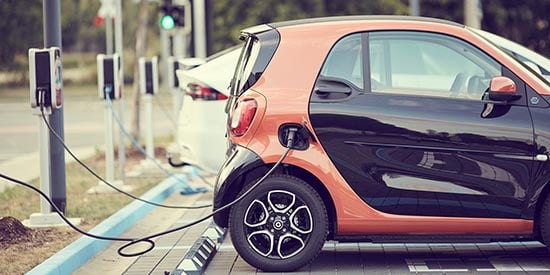Psychological factors key to lifting brakes on electric vehicle adoption
Media release
Forget price and performance, new Deakin University research shows that 'keeping up with the Joneses' could be a key driver for Australians considering the purchase of an electric car.
The research - led by Dr James Davidson as part of his recently completed PhD in the Deakin Business School - is the first to fully explore the drivers behind Australian consumers' adoption of electric vehicle, both economic and psychological.
It shows changing social norms and attitudes to electric cars are a key avenue to encourage greater take-up of the environmentally-friendly vehicles.
The research specifically focussed on battery-powered vehicles - 100 per cent electric cars such as the Tesla, BMW i-3, and Nissan Leaf - which made up less than 0.2 per cent of all Australian car sales in 2018. And according to recently reported data from the Electric Vehicle Council, 6718 fully electric and plug-in hybrid cars were sold in Australia in 2019, a market share of less than 0.6 per cent.
Dr Davidson surveyed more than 500 Australians to explore what drove potential purchasing decisions around electric vehicles.
"We found that tangible things like purchase price, operating costs, driving range, emissions and acceleration time are all certainly influential in the decision-making process," he said.
"But they also sit closely alongside psychological components, because some consumers only act in a certain way because of prevailing attitudes and social norms.
"We found it's actually this part of the equation that has a big role to play in driving a higher uptake of electric vehicles in Australia. It's not just the tangible attributes that underpin buying behaviour, but social norms, such as what your friends and family might think of your purchase and attitudes towards the vehicles.
"That means policy-makers and industry need to do more change the social acceptance of electric cars, as well as consumer understanding. It doesn't matter how good a vehicle is or how much it costs, if a potential buyer's friends and family encourage it as the right choice that will make the real difference."
Dr Davidson said his research also showed that Australia's status as a car-loving nation proved a barrier to electric vehicle adoption.
"My data showed that if driving is someone’s preferred mode of transport - as is common in Australia - they are more price sensitive and place a lower value on the attributes of electric vehicles than those who prefer other modes of transport.
"The results also indicate that a preference for vehicle size, specifically large vehicles, has a significant influence on consumers' willingness to pay for electric vehicles. This is probably underpinned by the fact owners of large conventional petrol-powered cars have to make greater trade-offs when considering an electric vehicle, particularly on things like driving range."
Dr Davidson said Australia remained well behind the developed world in electric vehicle adoption, which made it essential for marketers and policy makers to better promote these products to Australian consumers.
"That's particularly pertinent when we consider proposed targets like electric cars making up 50 per cent of all new vehicle sales by 2030 in Australia.
"In the UK, Prime Minister Boris Johnson recently announced that the UK government will now ban the sale of new gasoline-powered cars five years earlier than planned, bringing that forward to some point in 2035.
"Across in Norway, battery electric vehicles make up more than 29 per cent of market share, and when combined with plug-in hybrid electric vehicles, more than 46 per cent, but they have multiple incentives.
"So if Australian policy-makers and industry want to increase the domestic uptake of electric vehicles by Australian drivers, they need to look at incentives that not just address the tangible attributes around cost and performance, but also incentives that position electric vehicles as the social norm."

